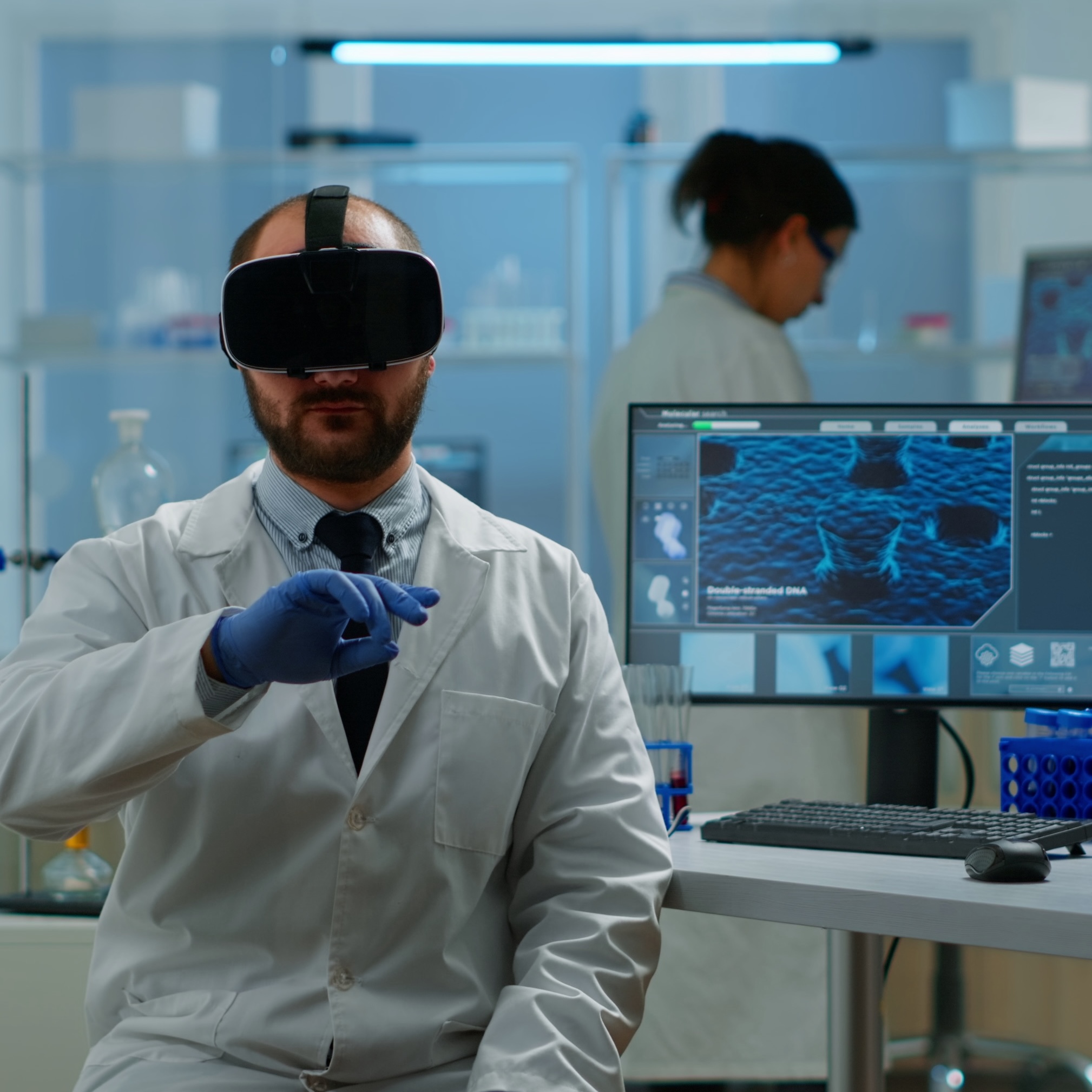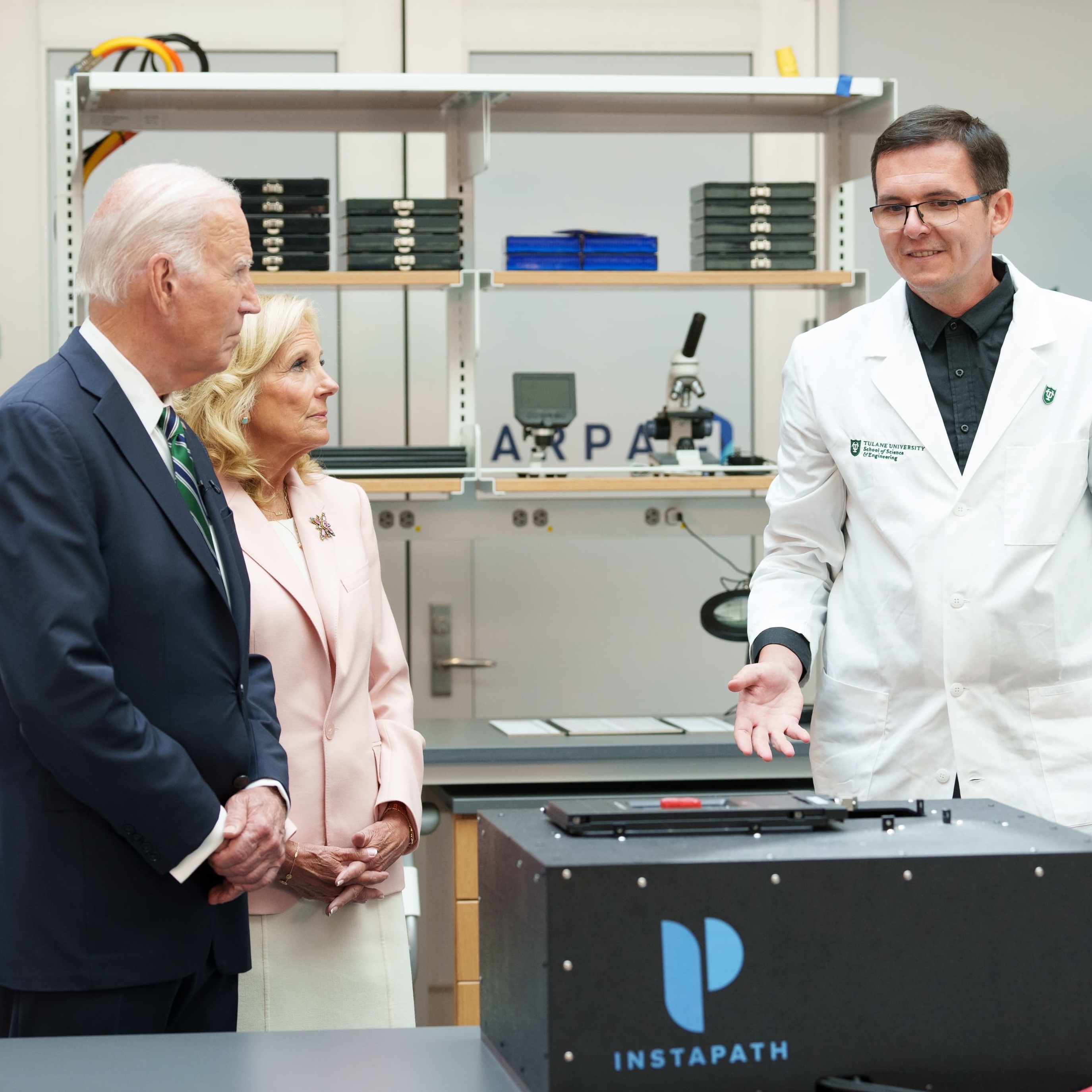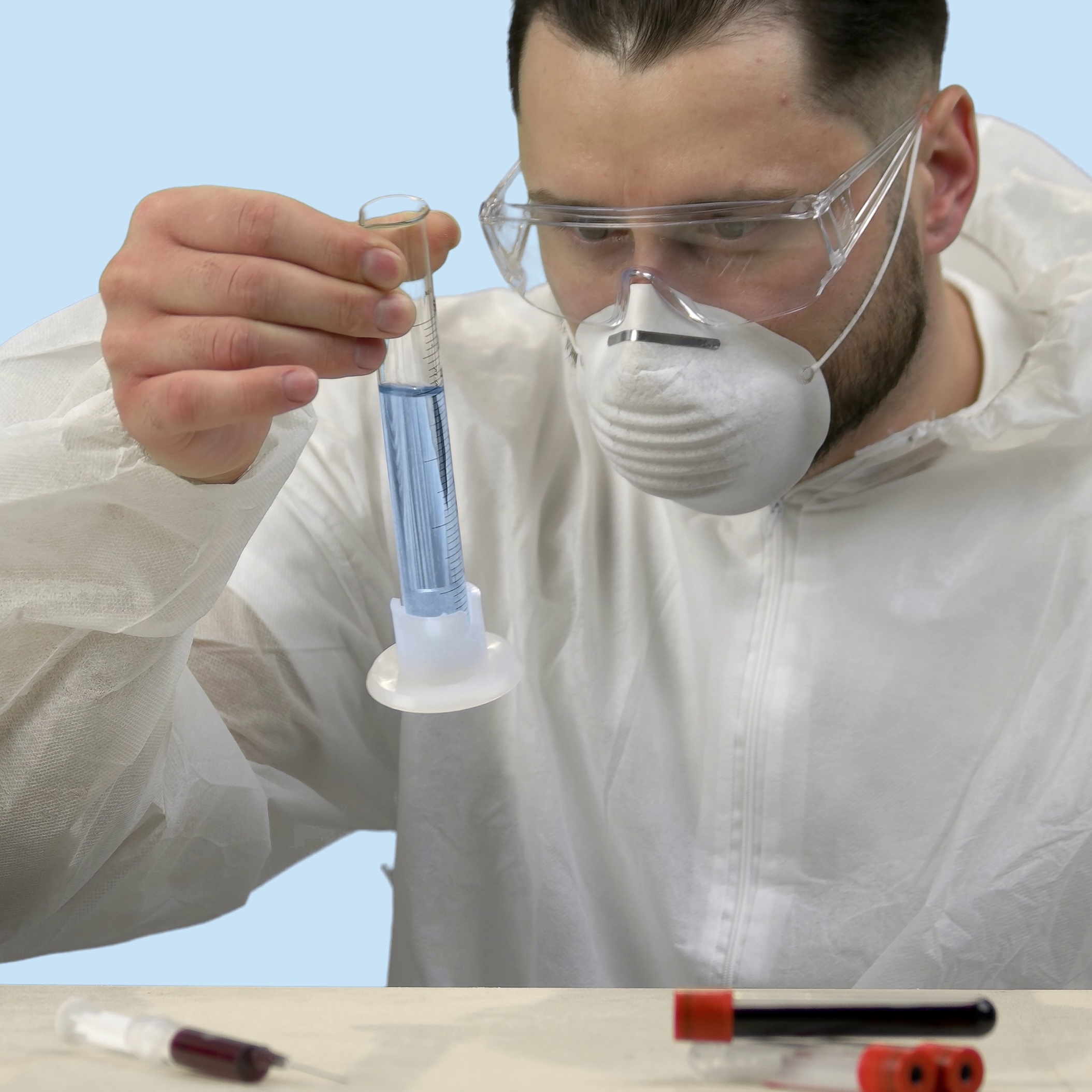Master’s Program in Bioinnovation
Bioinnovation: The Most Cutting-Edge Master’s in Biotechnology Commercialization and Entrepreneurship
The Master of Science in Bioinnovation is designed for aspiring leaders in the biotechnology sector. This innovative program leverages the success of Tulane's PhD Program in Bioinnovation, established in 2012, and meets the growing demand for advanced training in technology commercialization. With a focus on cultivating a talent pipeline to sustain the biotechnology enterprise in the region, this program is poised to become a cornerstone of Tulane’s commitment to innovation and entrepreneurship.
The Department of Biomedical Engineering offers courses of study leading to the Master of Science (MS) in Bioinnovation through the Graduate Division of the School of Science and Engineering. This is a professional, non-thesis degree that represents the intersection of biological science, technology, and business as it relates to the commercialization of new biological technologies. For more information, download our Graduate Student Handbook.
Resources
- Meeting Market Demand: The MS in Bioinnovation is uniquely crafted to address the increasing need for specialized education in biotechnology commercialization. It is designed to prepare students for the dynamic and ever-evolving demands of the biotech industry.
- Built on Proven Success: Building on the success of our PhD Program in Bioinnovation, this master’s program continues Tulane's tradition of excellence in training the next generation of innovators.
- Regional Impact: By fostering a talent pipeline, this program supports the growth and sustainability of the biotechnology sector in the region, contributing to the local economy and the advancement of science and technology.
- Synergy with Tulane Innovation Institute: The program aligns with the goals of the newly formed Tulane Innovation Institute, offering students unparalleled resources and opportunities to bring their ideas to life.
Who is ideal for Tulane Biomedical Engineering’s Master's Program in Bioinnovation?
- STEM graduates who are passionate about biotechnology and looking to transition into commercialization roles.
- Professionals seeking to advance their careers or pivot into the biotechnology sector with specialized training in technology commercialization.
Distinctive Features:
- Interdisciplinary Curriculum: Our program offers comprehensive training in advanced biology (e.g., Molecular Biology, Genomics, Microbiology, Anatomy, Organ Physiology), cutting-edge technology (e.g., Design Principles, Biomaterials, Signals & Systems, Biomedical Imaging, Data Science), and essential business skills (e.g., Business, Finance, Entrepreneurship).
- Regulatory Affairs Training: Gain expertise in navigating the regulatory landscape, including FDA processes, clinical trials, and testing standards.
- Capstone Internship: Engage in a hands-on “Capstone” internship focused on technology commercialization. Students will work directly with a commercial entity or university faculty to tackle real-world challenges in customer discovery, market research, and more.
- Bachelor’s of Science degree (or its equivalent) in a STEM discipline from an accredited college or university
- GPA of 3.0 (or justification for GPA below this threshold)
- Online application to include:
- CV or Resume
- Transcript(s)
- Personal statement describing applicant’s prior qualifying experiences, motivation for entering the program, future career goals, and desire to study at Tulane
- At least 2 letters of recommendation
International applicants must submit TOEFL scores unless they have received a degree from an English-speaking institution.
Priority Consideration Deadline is December 15. After December 15 applications are reviewed on a rolling basis with a deadline of May 1 for the Fall Semester.
This 4+1 program is open to all Tulane SSE graduating seniors. Up to 6 credits of 6000 level undergraduate work may be counted towards both the UG and MS degree. Up to 6 additional credits of graduate level work, taken as an undergraduate, may be transferred to the master’s degree. Students will need to work with their advisor prior to bachelors graduation to determine how these credits affect their MS degree requirements.
Students will be expected to complete 24 hours of course work in biology, commercialization, technology & design, and policy & regulatory affairs, plus 6 hours of a professional internship. Students are required to take at least 2 courses in each of biology, commercialization, and applied science, and at least 1 course in policy. Graduate prerequisites to these courses will be accepted for credit toward the degree. Additional courses will be considered to fulfill these requirements by written petition.
Biological Foundations (at least 2 courses required)
BMEN 6030/6035 (4 cr) Anatomy & Physiology for Engineers with Lab
BMEN 6070/6075 (4 cr) Quantitative Physiology with Lab
CELL 6030/6035 (4 cr) Molecular Biology with Lab
CELL 6220/6225 (4 cr) Microbiology with Lab
CELL 6310 (3 cr) Cellular Neuroscience
CELL 6710 (3 cr) Molecular Biology of Cancer
CELL 6750 (3 cr) Cell Biology
Commercialization, Business, and Entrepreneurship (at least 2 courses required)
BMEN 6080 (3 cr) Technology Invention & Commercialization
SCEN 6000 (3 cr) Entrepreneurship in Bioscience
FINE 7140 (3 cr) Venture Capital & Private Equity
MGMT 7210 (3 cr) Management of Technology & Innovation
MKTG 6020 (3 cr) Marketing
Technology & Design (at least 2 courses required)
BMEN 6440 (3 cr) Microphysiological Systems
BMEN 6790/6791 (3 cr) BME Design Studio with Lab
BMEN 6800 (3 cr) Data Science in Medical Imaging and Machine Learning
BMEN 6830 (3 cr) Intro to Biomedical Imaging & Image Processing
BMEN 6840 (3 cr) Medical Imaging Physics
BMEN 6970 (3 cr) TRIZ—Theory of Inventive Design
BIOS 6040 (3 cr) Intermediate Biostatistics
CELL 6050 (3 cr) Foundations of Pharmacology
CENG 6781 (3 cr) Synthetic Biology & Genetic Engineering
CENG 6870 (3 cr) Biomolecular & Cellular Engineering
Policy & Regulatory Affairs (at least 1 course required)
MGMT 7170 (3 cr) Healthcare Policy & Reform
SPHL 6070 (3 cr) Health Systems Policy & Management
Internship (both courses required)
BMEN 7560 (3 cr) Professional Internship I
BMEN 7570 (3 cr) Professional Internship II
Hands-On Experience in Biotechnology Commercialization
The capstone internship is a cornerstone of the MS in Bioinnovation program, providing students with invaluable real-world experience. Interns can choose to work with a commercial entity or collaborate with Tulane faculty pursuing commercialization efforts. The internship projects focus on technology commercialization, customer discovery, market research, and other relevant areas, distinctly different from traditional R&D roles.
- Structured Internships: Each internship is guided by a Memorandum of Understanding (MOU) between the student, the sponsor, and Tulane with clearly outlined expectations and deliverables.
- Pilot Program Success: Our pilot program with Bioceptive, a local startup, has already set a strong precedent, providing valuable insights and experience to our first cohort of students.
- Students will receive course credit for their effort, so they will not be able to receive payment during the credited internship. If external companies desire to retain students before or after the semester in a paid role, that is their discretion.
- At the end of the internship, students will deliver a final report to the sponsor and the program, showing their ability to apply classroom knowledge to practical industry challenges. The internship courses will be graded S/U, and feedback will be solicited from each sponsor toward the end of each semester in order to assign the grade.
Neither Tulane nor the BME Department is able to provide financial support for master’s programs at this time, though some students may be eligible for various third-party scholarships or fellowships, and students are encouraged to seek out and apply for those opportunities. Additional financial need is most often met in the form of low-interest student loans.
For students in the 4+1 program scholarships and other financial aid will not normally be continued, however, there is reduced tuition for these students.
Join the Next Generation of Bioinnovators
The Master of Science in Bioinnovation at Tulane University is more than just a degree. It is a launchpad for your career in biotechnology. Whether you are a recent STEM graduate or a professional seeking to develop further into this exciting field, this program offers the tools, resources, and network to achieve your goals.



